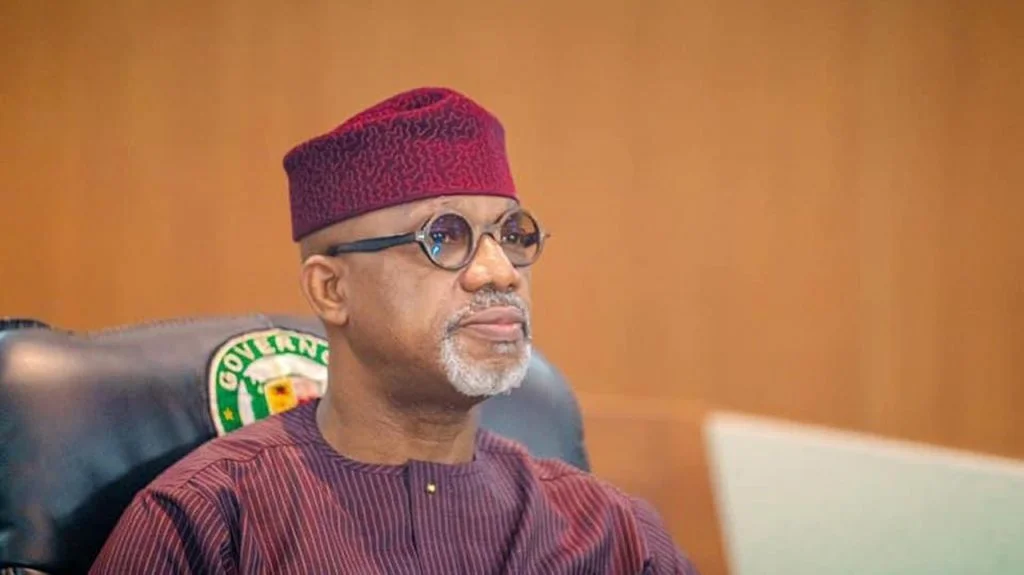Lagos, Ogun State Take 40% of Total Energy Nigeria Produces
A staggering 40% of Nigeria’s total energy production is consumed in the two neighboring states of Lagos and Ogun, according to recent data.
This revelation highlights the significant role that these two states play in the country’s energy landscape, with Lagos and Ogun State accounting for nearly half of the nation’s total energy consumption.
The data, which was recently released, shows that the high demand for energy in Lagos and Ogun State is driven by the large population, industrial activities, and commercial enterprises that are concentrated in these two states.
Lagos, being the economic hub of Nigeria, is home to many industries, including manufacturing, construction, and financial services, which require a significant amount of energy to operate.
Ogun State, on the other hand, has emerged as a major industrial hub in recent years, with many companies setting up operations in the state to take advantage of its strategic location and business-friendly environment.
The state is home to several major industrial estates, including the Ogun Guangdong Free Trade Zone, which has attracted many Chinese and other foreign investors.
Lagos and Ogun State are often referred to as the “market” due to their large population and high demand for goods and services.
The two states are home to over 20 million people, which is approximately 10% of Nigeria’s total population. The high population density and urbanization in these two states have created a huge market for energy, with many households, businesses, and industries competing for a share of the available energy supply.
The energy consumption pattern in Lagos and Ogun State is dominated by fossil fuels, with petrol, diesel, and gas being the most widely used energy sources. However, there is a growing trend towards the use of alternative energy sources, such as solar and wind power, particularly among households and small businesses.
The high energy consumption in Lagos and Ogun State has significant implications for Nigeria’s energy sector. The data suggests that the country needs to increase its energy production to meet the growing demand from these two states. The Nigerian government has already taken steps to address the energy shortfall, including the development of new power plants and the expansion of existing ones.
However, the high energy consumption in Lagos and Ogun State also highlights the need for energy efficiency and conservation measures.
The government and private sector operators need to work together to promote the use of energy-efficient technologies and practices, particularly in the industrial and commercial sectors.
The high energy demand in Lagos and Ogun State also presents opportunities for investors and entrepreneurs. The energy sector is a critical component of the Nigerian economy, and there is a growing need for innovative solutions and technologies that can help to meet the energy needs of the country.
The development of alternative energy sources, such as solar and wind power, is an area that holds great promise for investors and entrepreneurs.
The Nigerian government has already taken steps to promote the use of renewable energy, including the introduction of policies and incentives to support the development of the sector.
Despite the opportunities, there are also challenges that need to be addressed. The high energy consumption in Lagos and Ogun State is putting a strain on the country’s energy infrastructure, particularly the power grid.
The frequent power outages and energy shortages that are experienced in these two states are a major concern for businesses and households.
The government and private sector operators need to work together to address the energy infrastructure challenges, including the development of new power plants, transmission lines, and distribution networks.
The promotion of energy efficiency and conservation measures is also critical to reducing the energy demand and alleviating the pressure on the energy infrastructure.
The data showing that 40% of Nigeria’s total energy production is consumed in Lagos and Ogun State is a wake-up call for the government and private sector operators.
The high energy demand in these two states presents both opportunities and challenges, and there is a need for a coordinated approach to address the energy needs of the country.
The development of alternative energy sources, energy efficiency, and conservation measures are critical to reducing the energy demand and alleviating the pressure on the energy infrastructure.
The government and private sector operators need to work together to promote innovative solutions and technologies that can help to meet the energy needs of the country, particularly in the industrial and commercial sectors.







